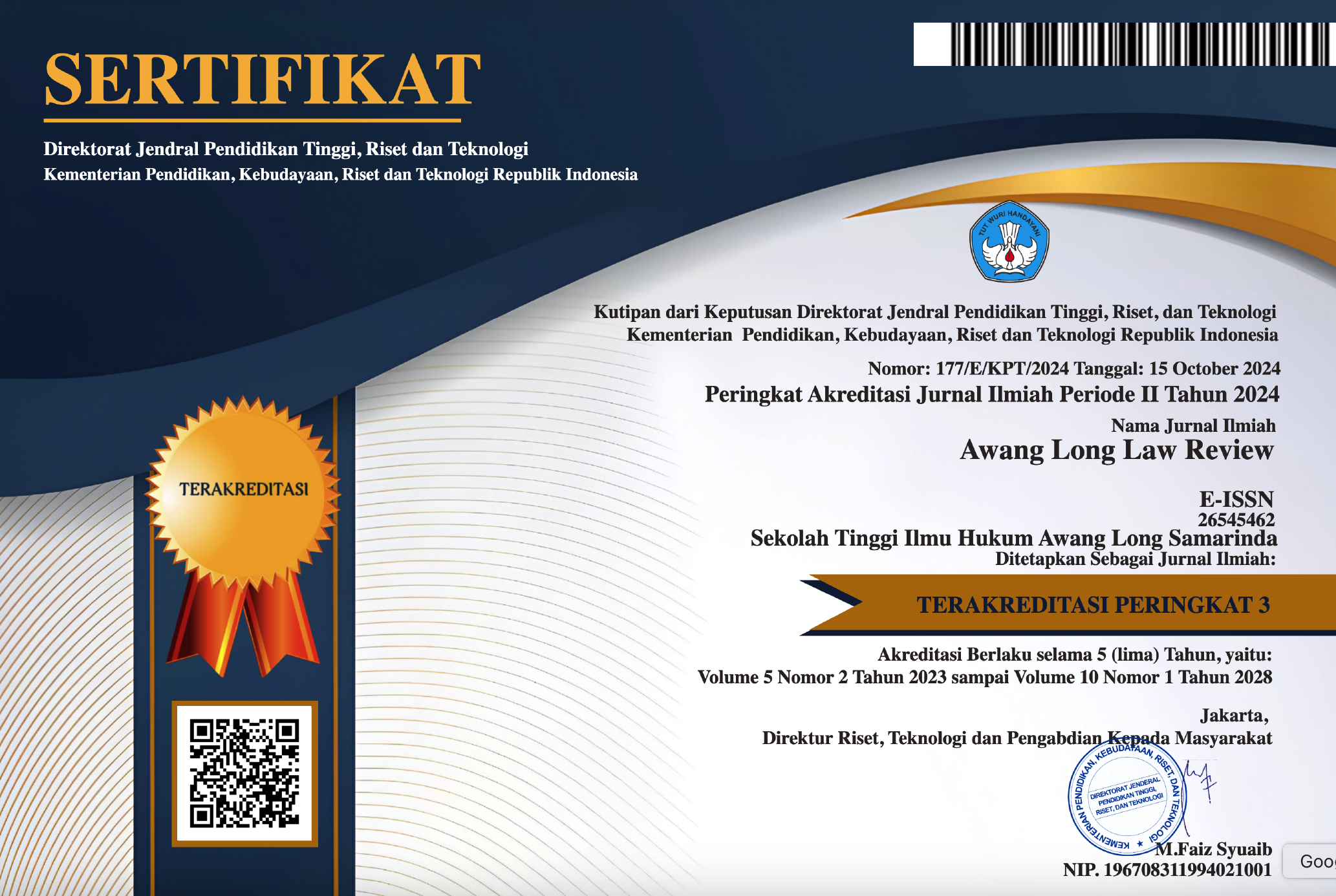EDUCATION CITY POLICY IN HANDLING CHILDREN WITHOUT SCHOOL
Abstract
The purpose of this research is to find out and analyze government policies as well as supporting and inhibiting factors to minimize children who do not go to school. The method in this research is qualitative research that focuses on city education policies. Data collection techniques with interviews, observation and documentation. and Conclusion The results of the study show that the government has a program to prevent children from dropping out of school, namely free elementary-junior high schools, a zoning system for new schools. students, free uniforms for underprivileged people, package A, B and C systems, and school buses. However, the fact is that the programs implemented have not been on target and there are still children who drop out of school in Malang City or the City of Education.
Downloads
References
Abdul Wahab, S. (2014). Wisdom Analysis from Formulation to State Policy Implementation. Jakarta: Earth Script.
Abdullah, M. R., P., & R. (2020). Analysis of Factors Causing Children to Drop Out of School in Amonggedo District, Konawe Regency. Journal of Islamic Education, 1(1), 19–25.
Alfariz, F. N., & Purhadi, P. (2020). Modeling the Number of School Drop Out Children of Compulsory Education Age and the Number of Women Marrying Early in East Java using the Geographically Weighted Bivariate Negative Binomial Regression Approach. ITS Journal of Science and Art, 8(2). https://doi.org/10.12962/j23373520.v8i2.44402
Central Bureau of Statistics. (2021). Mid-Year Population 2020-2022. Central Bureau of Statistics (bps.go.id). Accessed February 21, 2023.
Central Bureau of Statistics. (2021). Number of Children Out of School by Education Level and Gender 2019-2021. Retrieved from https://www.bps.go.id/indicator/28/1986/1/angka-anak-tidak-school-menurut-jenjang-education-dan-tipe-kelamin.html. Accessed February 21, 2023.
D., B., Hidayat, S., & Dewi, R. S. (2022). Definition of Education. Journal of Education and Counseling (JPDK), 4(6), 7911-7915.
Dewi, A. K. (2013). Analysis of Factors Causing School Dropouts in Gerokgak District. Academia Edu, 4(1), 1–13. https://www.academia.edu/10893628/ANALISIS_FAKTOR_FAKTOR_PENYEBAB_ANAK_PUTUS_SEKOLAH_USIA_PENDIDIKAN_DASAR_DI_KECAMATAN_GEROKGAK_TAHUN_2012_2013
Fadli, M. R., & Kumalasari, D. (2016). Indonesian Education System in the Old Order Period (1945-1966 Period) Introduction to the Indonesian Education System in the Old Order Period. Agastya, 9, 157–171.
Hendrawan, D. N., & Hendriana, B. (2021). Parenting Patterns of Students' Parents with Motivation to Learn High-Level Mathematics during the Covid-19 Pandemic. Mosharafa: Journal of Mathematics Education, 10(3), 369–378. https://doi.org/10.31980/mosharafa.v10i3.1020
Hidayati, N. (2018). A Portrait of Poverty and Its Mitigation Efforts Through Social Protection Programs in Remote Areas of South Banyuwangi. Darussalam Journal: Journal of Islamic Law Education, Communication and Thought, 10(1), 212. https://doi.org/10.30739/darussalam.v10i1.281
Imron, A. (2016). School-Based Student Management. Jakarta: Earth Script.
Ministry of Education and Culture. (2021). NUMBER OF STUDENTS OUT OF SCHOOL BY GENDER AND EACH PROVINCE LEVEL. Retrieved from https://statistik.data.kemdikbud.go.id. Accessed 21 February 2023.
Mudjito, A. K. (2008). Policy of the Directorate of Kindergarten and Elementary School Development. Jakarta: Ministry of National Education Directorate General of Elementary and Middle Education Management Directorate of Kindergarten and Elementary School Development.
Moleong, L. (2014). Qualitative Research Methods (Revised Edition). Bandung: PT. Remaja Rosdakarya.
Putra, R. E., Putera, R. E., & Aromatica, D. (2022). Implementation of BPNT Distribution Policy through E-Warong Versus PT Pos Indonesia in Padang City. Sawala: Journal of State Administration, 10(2), 266–280. https://doi.org/10.30656/sawala.v10i2.4932
Putri, F. F., & Sukmana, H. (2022). Village Government Strategy for Stunting Prevention in Kedungkendo Village, Candi District, Sidoarjo Regency. Sawala: Journal of State Administration, 10(2), 224–235. https://doi.org/10.30656/sawala.v10i2.5168
Sholekhah, A. L. K. (2018). FACTORS CAUSING CHILDREN DROPPING OUT OF SCHOOL IN KARANGREJO VILLAGE, METRO UTARA DISTRICT By: Department: Islamic Religious Education (PAI) Faculty: Tarbiyah and Teacher Training. 93.
Sumarsono, C. W., & Muchsin, S. (2022). Model Analysis of Public Policy Implementation in Village Government in Dau District, Malang Regency in order to formulate the right model. 7(2).
Suparman, N., Septiadi, M. A., University, F., Negeri, I., Gunung, S., & Bandung, D. (2022). Regional Retribution Policy: Analysis of Revenue Potential at Recreation Places and Commercial Sports Venues. 7(2).
Susilowati, D. (2017). Policies for Handling Street Children in Malang City. National Seminar And Product Show October 17-18, 246, 884–889.
Copyright (c) 2023 Bela Safira, Eri Yusnita Arvianti, Cahyo Sasmito

This work is licensed under a Creative Commons Attribution-ShareAlike 4.0 International License.







